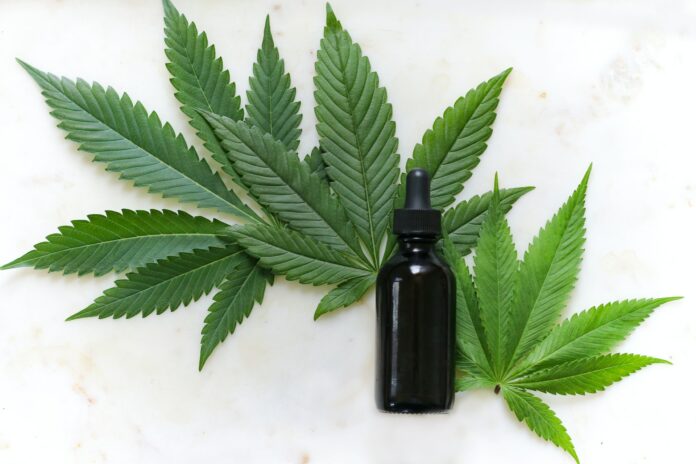One of the best outcomes of our highly developed scientific community is the advent of new drugs, herbs, and other kinds of medicines for various chronic conditions. Hundreds of ongoing research have made it easier for us to get our hands on a product that promises to “manage” our condition better than others.
If you or anyone you know deals with a medical condition such as arthritis, chronic pain, fibromyalgia, or intense anxiety, then you must have heard all about the recent hype of CBD. You might have even become tired of people constantly recommending CBD to manage pain, discomfort, and anxiety. At this point, maybe you are even considering it. Before you do so, you must know what exactly is it and whether it’s safe or not.
Let us shed some light on it and help you make an informed decision. After all, when it’s about your health, you have to be extra careful.
CBD: What We Know About It?
Cannabidiol, commonly known as CBD, is a type of cannabinoid that’s found naturally in the cannabis plant. To put it simply, it’s basically a chemical extracted from plants such as cannabis and hemp. It’s not marijuana itself but merely a component of it.
The core chemicals of marijuana are THC (tetrahydrocannabinol) and Cannabidiol. While THC is an active psychostimulant, CBD is the complete opposite. It’s a non-psychoactive component of marijuana with various medicinal properties.
So, you don’t have to worry about getting “high” when using CBD. However, you might feel more comfortable, less stressed, and definitely less pain.
The Difference Between CBD And THC
CBD and tetrahydrocannabinol (THC) are two of the various types of cannabinoids found in marijuana. They are the most potent chemicals of the plant and give it most of its properties. Research has found other cannabinoid chemicals, but none come close to these two types.
The main difference between CBD and THC is how it affects the brain. THC is a complex chemical that acts as a CNS stimulant and relaxant too. Evidence suggests that THC binds to one of the main cannabinoid receptors because it’s similar to the naturally occurring chemical of our brain. This gives it a chance to increase brain activity and provide a certain “high”.
On the other hand, CBD doesn’t give you the “high” sensation. Instead, it calms our system, soothes us, decreases anxiety and stress, and even relieves inflammation.
Due to its structure and interaction with our body, it might also not show up on drug tests, while THC does. Other major differences are their formulations, availability, and legality. The FDA has approved only two formulations of THC, Nabilone and Dronabinol, for treating nausea and vomiting.
The Legality
After many medically backed-up claims of benefits and treatments, marijuana-derived CBD has officially become legal on a federal level. However, its legality is still an issue on a state level. Moreover, CBD-based products with less than 0.3% of THC are legal. But products with a higher than 0.3% percent THC concentration are still considered marijuana and come under the list of controlled substances in many states.
Before using any kind of CBD product, make sure to check its THC content and your state laws.
Mechanism Of Action: How Does It Work?
The human body is made up of complex organs, along with many other modulatory and regulatory systems. One such system is the endocannabinoid system (ECS). It’s a network of chemical signals and cannabinoid receptors that regulate various neurotransmitters, brain activity, development, and plasticity.
CBD interacts with the cannabinoid receptors to stimulate them and produce our body’s own cannabinoids. The ECS also modulates immune tissues, and that’s how CBD helps relieve inflammation and pain.
Why The Sudden Hype?
Since its discovery and availability in the market, CBD has gained quite a popularity. And rightfully so. Its use is medically supported by good results and benefits that far outweigh the effects of other similar drugs.
In a study conducted in 2018 by the National Library of Medicine, it was proved that CBD was well tolerated among patients and it can reduce the debilitating symptoms of PTSD and anxiety. It has also been found beneficial in the treatment and rehabilitation of patients with opioid addiction. Compared to opioids, CBD is safer because it doesn’t have addictive potential and often shows better pain-relieving effects.
Many other benefits offered by CBD have caused a sudden rise in its popularity. Although, before using it for medical purposes, we must know whether it’s safe or not.
Is It Safe?
CBD is the hottest talk of the town right now. Every company, from pharmaceutical to beauty, is in the race to introduce a CBD product with high demand. Since it’s mostly used as an infusion with other products, much research supports the idea that it’s a relatively safe product to use.
It has a high safety profile when used in oral, oil-based, and cream formulations. However, consumers must pay heed to illegally sold CBD products. When opting for CBD, it’s better to choose products of a safe brand such as those offered by oasis cosmetics instead of shady ones.
Some common side effects that have been observed are nausea, vomiting, diarrhea, and fatigue. But they are less frequent and not something to worry about too much. What people should be concerned about is its interaction with other drugs. It’s better to check with your doctor before using it.
Efficacy And Uses
Now that we know it’s relatively safe to use, the next question that arises is about its effectiveness. Fortunately, CBD has shown promising results in multiple trials for multiple medical conditions.
CBD For Epilepsy
The only FDA-approved CBD-based drug is for epilepsy. That goes to show how effective it must be. It’s a drug that deals with epileptic seizures resulting from rare conditions like Dravet Syndrome and has shown beneficial results in different clinical trials.
CBD For Chronic Pain
Apart from epilepsy, CBD is currently being used to manage chronic pain. CBD sprays have been used to treat pain caused by Multiple Sclerosis. Furthermore, CBD creams are marketed to relieve chronic pains caused by arthritis, muscle spasms, and even slipped discs.
CBD For Acne
A research conducted by NCBI in 2014 showed the effects of CBD on the skin. It showed that CBD has the potential to control excessive sebum production. This property is quite useful in the treatment of facial and body acne.
Final Thoughts
CBD has become a huge hype among the medical community. From promising clinical results to patients’ personal experiences, it may become a staple in the treatment of chronic pain, epilepsy, and anxiety. Although CBD still needs a few years to gain that kind of recognition, there is no harm in trying it out and seeing if it works for you or not.


